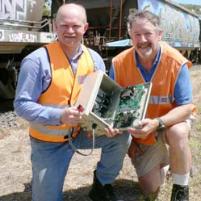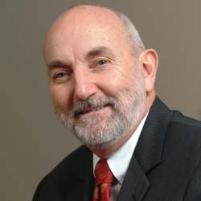Strong international interest for Rail CRC brake project
Published on 13 November, 2006
RAIL Cooperative Research Centre (CRC) has attracted international commercial interest in its newly developed innovative brake technology – OZ-ECP Brakes.
Rail CRC, based at CQU Rockhampton, was established and supported under the Australian Government’s Cooperative Research Centres program.
OZ-ECP Brakes is a collaborative project between Rail CRC members Monash University, Central Queensland University and rail industry partners.
 Recent discussions between France-based international transport company Faiveley Transport and Rail CRC resulted in Faiveley expressing strong interest in becoming a partner to commercialise the new brake technology - initially in the Australian market, then internationally.
Recent discussions between France-based international transport company Faiveley Transport and Rail CRC resulted in Faiveley expressing strong interest in becoming a partner to commercialise the new brake technology - initially in the Australian market, then internationally.
Rail CRC CEO Professor Dudley Roach (pictured) said the rail industry stood to gain enormous benefits from adopting the new technology.
“By implementing this technology, the rail industry can achieve enormous benefits in reduced fuel consumption, longer and faster trains, increased capacity of rail corridors, reduced probability of derailments and other accidents, easier training of train drivers, and significant cost savings in wheel maintenance,” Prof Roach said.
“Rail CRC’s OZ-ECP Brakes technology greatly reduces the conversion costs for existing trains to install pneumatic brake technology. The new system maintains the pneumatic system and can be mixed with non-OZ-ECP wagons and allows a staged retrofit to trains.
“This means the OZ-ECP Brake technology allows the conversion to be carried out gradually with minimal 'down-time', and the brakes can then be 'turned on' when all conversions are complete. It also offers greater safety levels, as the conventional braking system is retained as a backup".
Professor Roach said there was also the opportunity to 'package' OZ-ECP Brakes with other Rail CRC research outcomes such as the 'Health Card' – an innovative diagnostic tool to detect vehicle and rail track faults at very early stages.
 “With a growing global demand for resources and the supply limited in many countries by rail network capacity, the time for adoption of this type of new technology is just right,” Professor Roach said.
“With a growing global demand for resources and the supply limited in many countries by rail network capacity, the time for adoption of this type of new technology is just right,” Professor Roach said.
Further discussions between Faiveley and Rail CRC will take place later this month.
Rail CRC members are Queensland Rail, RailCorp, Pacific National, ARTC, TMG International, Central Queensland University, University of Wollongong, Monash University, Queensland University of Technology, The University of Queensland and University of South Australia.
For more information on this and other Rail CRC projects visit www.railcrc.com.au .
Photos: Professor Dudley Roach (above) and (below) Professor Peter Wolfs (CQU) and Professor Bruce Kuhnell (Monash) from this year's OZ-ECP brake testing in Rockhampton.

